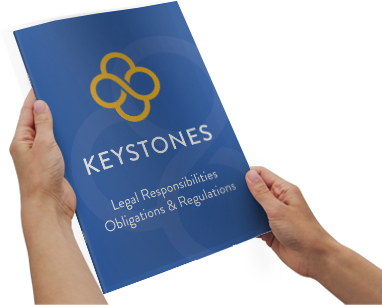Be informed and choose wisely to most effectively pay for your home
Buying a property at any time is exciting but especially so when it’s your first home. It’s a major investment – likely the biggest you’ll ever make – so it’s vital to ensure you fund it in the best way possible.
Financing your property
Unless you’re fortunate enough to have ready money to fund the whole purchase, chances are you’ll require a loan for the bulk of the purchase and this will be in the form of a mortgage usually from a bank or building society.
There are various mortgages available in what is a very competitive market, so choosing the right one may be a challenge.
Don’t just settle for one offered by your existing bank or building society; while you may have built a relationship with them they’re not your only option.
Using a financial adviser
Talking to a financial adviser is a good idea but ascertain what type of professional you’re engaging with.
Some advisers can only give advice on a limited range of lenders’ products (a ‘Restricted Adviser’) while others can advise based on a whole range of financial products (an Independent Financial Adviser or ‘IFA’).
Some advisers may charge while others make their money through commissions on products they recommend. Whoever you speak to ensure they are registered with the Financial Conduct Authority (FCA).
Estate agents often offer the services of an in-house professional or can recommend financial advisers; a local search such as ‘estate agents Romford’ if you’re in that area of Essex should yield options.
How much can you afford?
It’s not as simple as knowing what mortgage amount you’ll be offered although this is a vital part of the process.
You need to know how much overall you can afford based on outgoings you’ll face once you move in.
Along with your monthly mortgage payments you’ll have other expenses such as:
- Utility bills
- Council tax
- Transport and commuting costs
- Childcare
- Food and drink
- Clothing
- Existing debts (loans, credit cards and so on)
- Subscriptions (gym for example)
Be totally thorough in totting these costs up and be honest about what is affordable and not simply what a mortgage lender may offer.
Deposit
You’ll almost certainly require a deposit as a percentage of the purchase price; the minimum is likely to be 5% but of course you can pay more if you have it.
It’s probable that the more deposit you can put down the more favourable your mortgage offer will be in terms of maybe a lower interest rate.
The mortgage offer
You’ll need a proper mortgage offer to know how much you have as your purchase budget, so you should secure this before arranging viewings or even going onto property websites.
A mortgage amount gained from an online mortgage calculator isn’t enough to go on; you need an ‘Agreement in Principle’ (AIP) from a lender and, armed with this knowledge, can then start house hunting with some intent.
Understanding mortgages
There are different types of mortgage; your financial adviser should be able to explain clearly the options and help you choose the right one for your requirements.
Here are some you’ll likely hear about:
- Standard variable Rate (SVR) – this will have an initial interest rate set by the lender but it could vary through the life of the mortgage as interest rates fluctuate
- Tracker – this follows movement in the interest rate as set by the Bank of England
- Fixed rate – a popular choice as the interest rate is fixed for a certain time period regardless of what happens to interest rates generally; once the fixed rate has expired it usually reverts to an SVR type
Government help to buy schemes
These schemes may be of interest and they come in two parts:
The first part helps buyers who haven’t got enough for a deposit by offering an interest free loan of up to 20% of the property’s value; this is repaid after five years.
The second part offers lenders a guarantee against losses of up to 20% of the property’s value if the buyer puts up a minimum 5% deposit.
Start early
You should do your research and groundwork for your funding as soon as possible as applications can take a while to proceed.
Description:
Points to be aware of when financing a first property; setting an accurate budget, understanding mortgages, the deposit, using financial advisers, help to buy schemes.
Websites:
https://www.onthemarket.com/content/8-top-tips-financing-property-purchase
https://www.gov.uk/affordable-home-ownership-schemes
https://www.mydreamhaus.co.uk/finance-first-home
More from the Keystones learning hub
Keep updated with what's going on in your local area. Our latest news provides up-to-date information on everything regarding the local property market, for everyone including homebuyers, sellers, tenants, and landlords.
The Landlord Ombudsman & Renters Rights Bill – We Explain it All

3 June, 2025
It’s a great time to keep your UK Residential Buy to Let

20 May, 2025

Come and see us face to face
Keystones are Open 6 days a week. Pop in, have a Tea or Coffee as we always have people on hand to help you.
Keystones Property
-
Keystones Property Collier Row
13 Clockhouse Lane, Collier Row, Romford, Essex, RM5 3PH, United Kingdom -
Email: [email protected]
-
Telephone: 01708 909 100





